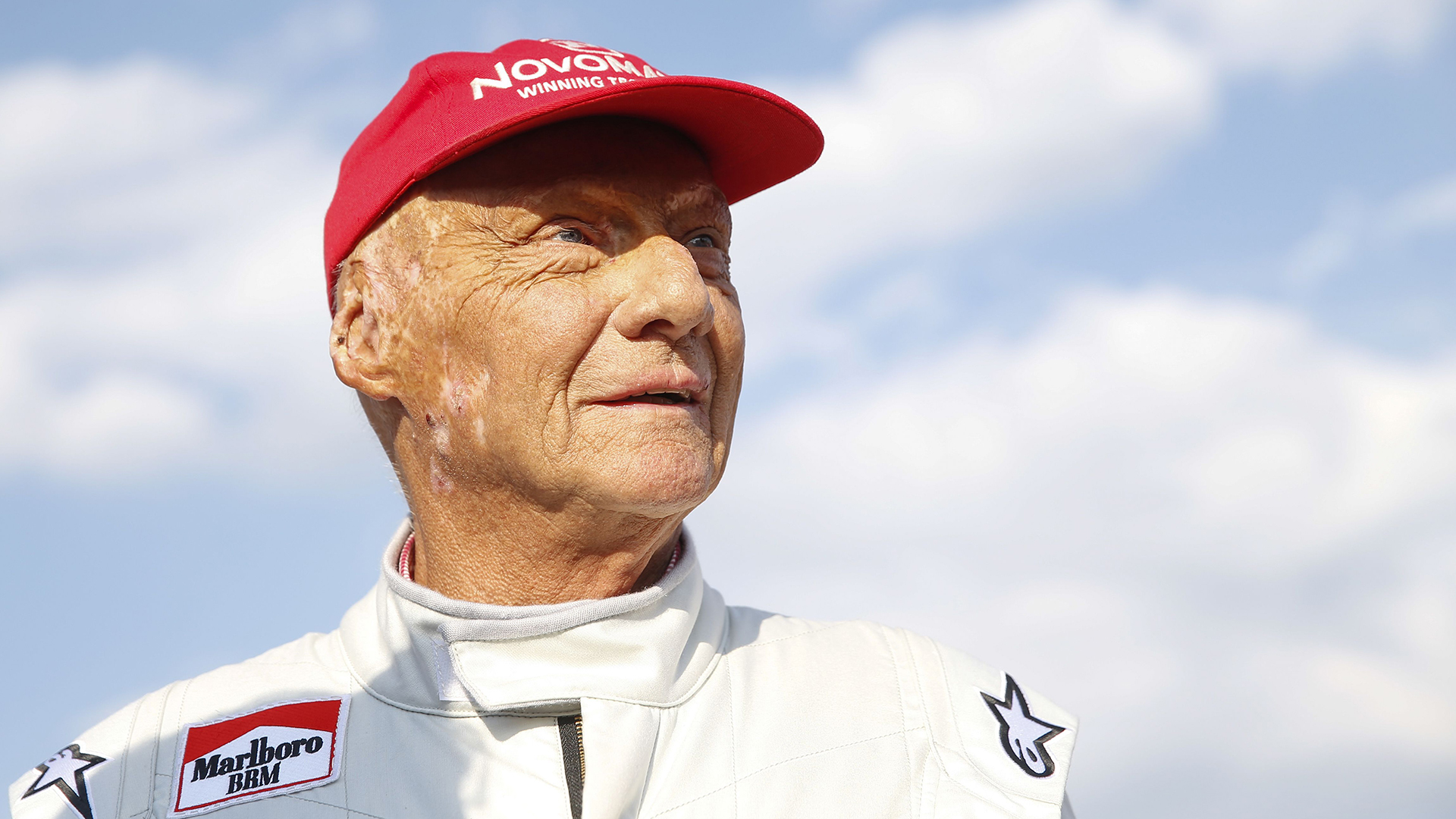

Three-time Formula One world champion and racing paterfamilias Andreas Nikolaus “Niki” Lauda has died following kidney troubles at the age of 70, according to multiple news reports and a statement released by his family.
Born in Austria, Lauda was a living link to F1’s flamboyant heyday in the 1970s, signing with Ferrari in 1973 and winning the drivers’ championship in 1975 and 1977. His triumphant return to the driver’s seat six weeks after a fiery crash on the Nurburgring in 1976 left him with disfiguring burns and lifelong health problems is widely viewed as one of the greatest comebacks in sports history. His contemporaneous rivalry with British driver and fellow icon James Hunt was later chronicled in the 2013 film Rush.

Lauda would go on to race for Brabham-Alfa Romeo for two middling seasons in 1978 and 1979 before deciding to retire; as the story goes, Lauda pulled into pulled into the pits during first free practice session of the 1979 Canadian Grand Prix and told then-team principal Bernie Ecclestone that he was quitting on the spot to form his own airline. And he did: Lauda Air, the first of two charter airlines that the aviation obsessive would go on to found during his life.

But Lauda was coaxed back into an F1 car by McLaren less than four years later, and he’d go on win the 1984 world championship in the McLaren MP4/2, which remains the winningest chassis in series history. And though professional driving career finally ended in 1985, Lauda remained an absolute fixture in F1, serving as a consultant for Ferrari, team principal for Jaguar in the early 2000s, and more recently the Non-Executive Chairman for the Mercedes-Benz team, where it’s said he played a large role in bringing on eventual five-time world champion Lewis Hamilton.
But he also wasn’t shy about sharing his thoughts on the current state of racing. For someone who nearly died in an F1 car, Lauda was highly critical of making F1 “too” safe, saying multiple times that the sport needs danger. Lauda was also against the addition of the safety halo in 2018.
“[F1] has become lost in technology and lots of superfluous rules and regulations. Fans are turning off and tuning out from chronic boredom and frustration. It’s sad,” Lauda told The Drive in 2016. “The drivers are much too nice. None of them has any quirks, and they all make sure they never put a foot wrong. Like robots. People want to see real men who make mistakes, take risks and say things they shouldn’t.”

Lauda’s life was defined by energy, bravery, ambition, and a blunt and fearless drive to persevere. His colorful personality made him a beloved part of the Formula One pantheon, and he took everything from business troubles to his fateful accident in stride; in 2009, he revealed that he was charging advertisers well over $1 million to place ads on the hats he always wore to cover up the scarring on his head.
Unfortunately, Lauda also suffered from deeper health problems tied to the accident, in which he inhaled incredibly hot toxic fumes that damaged his lungs and poisoned his organs. He received two kidney transplants in 1997 and 2005 as well as a double lung transplant last year, none of which seemed to slow him down until his health declined this spring.
“With deep sadness, we announce that our beloved Niki has peacefully passed away with his family on Monday, May 20, 2019. His unique achievements as an athlete and entrepreneur are and will remain unforgettable, his tireless zest for action, his straightforwardness and his courage remain,” the family’s statement reads, according to The Guardian.